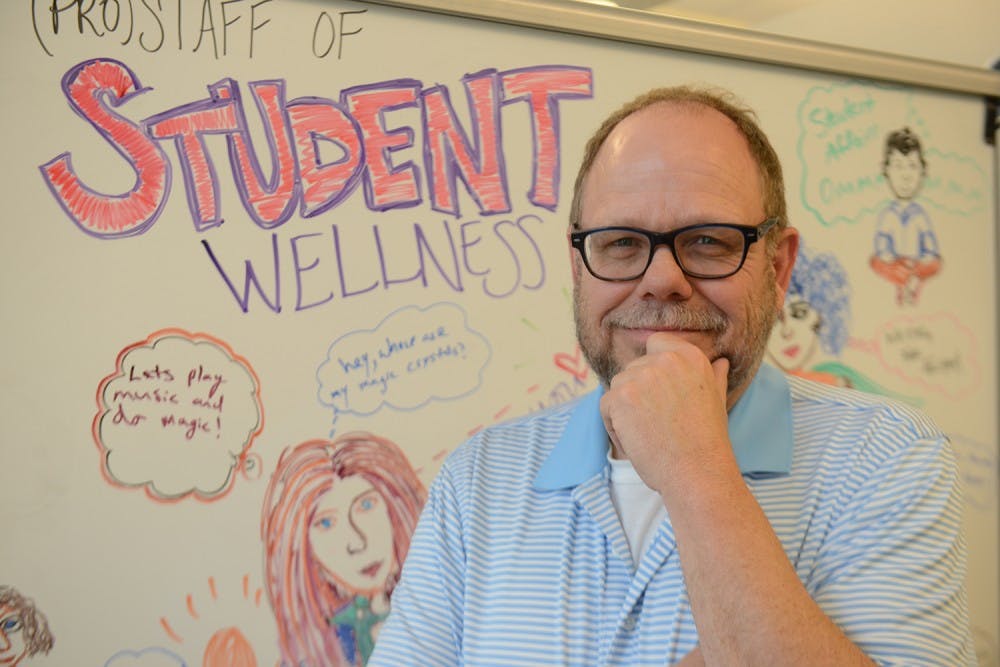“It was just like ‘What was everybody talking about? This is awesome,’” he said. “Everyone says this will hurt you but this is fucking helping me. All the anxiety and shit went away.”
His streak of getting good grades and winning tournaments didn’t last.
“I was starting to do unsafe things. When I was in Boston that summer for debate camp, I was buying drugs from people in the Boston Common, and I ended up getting robbed,” he said. “I had no money. I was stealing from my parents. My mom ended up kicking me out because we would get in these terrible, terrible arguments.”
But E. didn’t stop. He said in order to wean himself off of his addiction to marijuana, he would drink alcohol. He discovered he favored drinking and smoking at the same time.
“I was in this hotel room with my friends on the (debate) team and just blacked out,” he said. “I kept getting into fights with people and like, I don’t fight people. I ended up throwing my phone at somebody and running out of the room. I put a hole in the wall, apparently.”
For senior Brittany Wood, alcohol was a necessity.
“One of the signs of alcoholism is you have a high tolerance. There was a time where I had 17 drinks, woke up the next day, and was like totally fine,” she said. “I really liked that part of myself. It was definitely a part of my identity when I was drinking.”
Wood said alcohol became more available to her when she came to UNC her first year. She found herself only drinking a few times a month, but she felt very anxious about drinking.
“I had a therapist tell me ‘It’s not about how much or how often you drink, it’s about what happens when you drink,’” she said. “My mental addiction was very strong. Freshman year, I would always purchase a handle because I wanted to have a lot and when I would get down to half a handle, I would start to get anxious about not having enough.”
Wood said she didn’t need the social setting to drink.
“I would go into my parents' liquor cabinet and drink like nine drinks just to fall asleep, which is not normal behavior,” she said.
Having realized her actions were abnormal, Wood sought treatment, but she never successfully remained sober. It wasn’t until Wood started dealing with depression and anxiety that she went into treatment at the end of her junior year.
To get the day's news and headlines in your inbox each morning, sign up for our email newsletters.
“I knew I was an alcoholic but I didn’t know that meant I couldn’t drink or I didn’t want to believe that meant I couldn’t drink,” she said. “That was so upsetting to me.”
E. and Wood both reached a tipping point and needed to seek help.
E. had been in recovery for six months before coming to UNC. He said he reached out to Dean Blackburn, director of Student Wellness, who helped with the transition to college.
“There are people on campus who can help, who know what people are going through and are just waiting to help people,” E. said. “They’re willing to help people in whatever way they can be helped. They just want people to fucking stay sober, not die and graduate because that’s all we can do.”
Similar to E.’s experience, Wood got assistance from Blackburn in her transition back to UNC, and he remained in contact with Wood’s parents while she was in treatment. She will be one year sober on May 23.
“When I came to campus, Frank Allison was someone that I met up with to kind of say ‘OK how are you planning on going about your treatment, as well as recovery, as well as entering school?,’” she said.
Wood said the Carolina Recovery Program at UNC, run by Allison and Blackburn, is amazing. She said the thing that has kept her sober is the Carolina Recovery Group, a student-run organization for people in recovery.
“People idolize alcohol,” Wood said. “People worship it. They think it’s the best, which granted I did too. I still do sometimes. I think binge drinking is normalized on a college campus. That was why it was so hard for me to recognize and accept I was an alcoholic because I didn’t look different than anyone else.”
Because binge drinking is common on college campuses, Allison said there is a group of professionals on campus eager to help engage with the student body and help them figure out how substances fit into their lives.
“If you think about it on a continuum, we deal with some folks that are just questioning their use and then we help people that are exhibiting problematic use patterns,” he said. “We help some that maybe need to take a pause and go to treatment. Then, we help some that are on the other side of things in recovery, and we focus on strengthening their recovery.”
Allison said if a student is questioning their substance use, the first thing he will do is have a conversation with the student to figure out how to support and help them.
“They can’t have that conversation with their parents, so who can they have it with? Well, they can have it with us,” Allison said. “We’re not going to judge them. We’re not going to call their parents on them. We’re going to try to help them any way we can.”
university@dailytarheel.com




